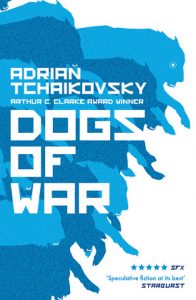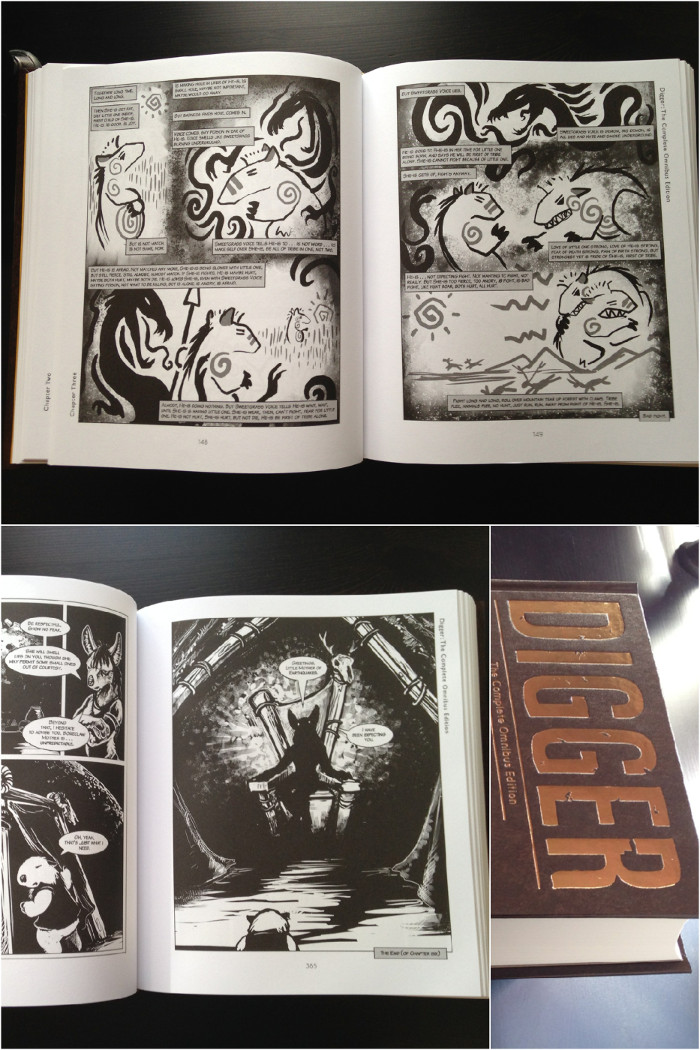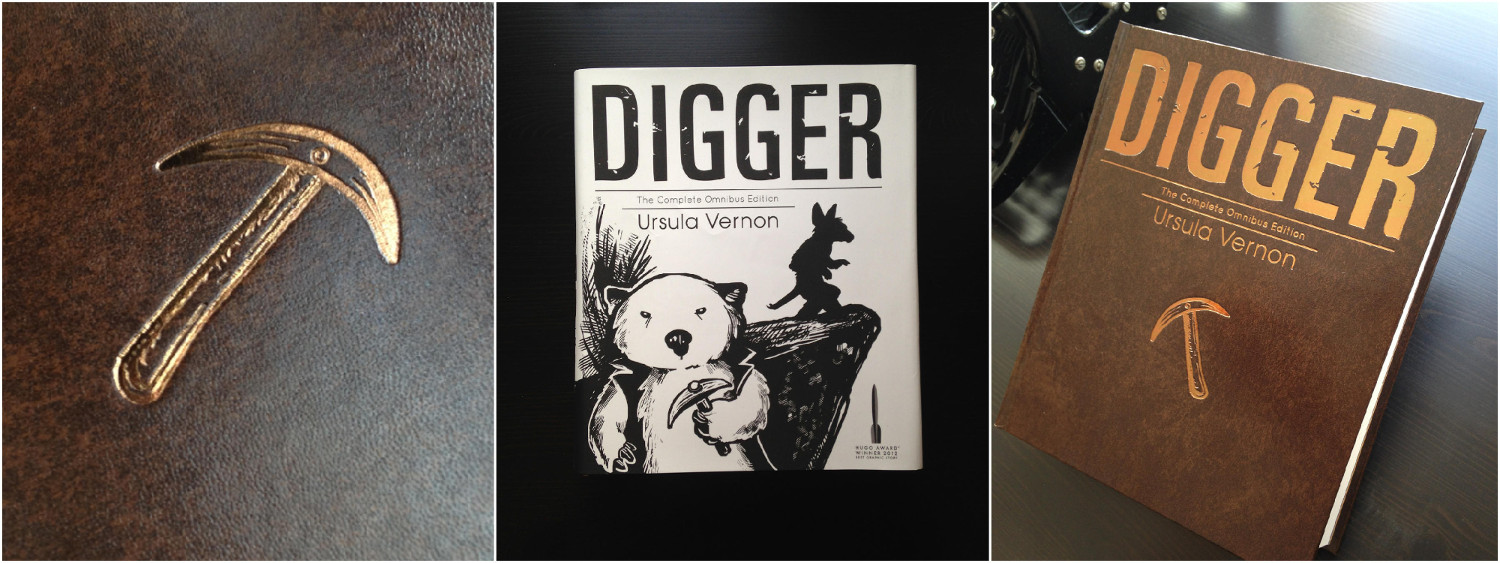Dogs come with more loyalty and trust than any single human should be allowed to handle, and thus stories about dogs are prone to enter the bitter space of betrayal, in some way or the other, unless you’re going for a trick ending like Richard Adams’ The Plague Dogs.
I like stories focusing on animals, I’m up for the occasional well-written military SF, and I’ve enjoyed all of Adrian Tchaikovsky’s novels I read, so Dogs of War was an insta-buy for me. And I knew from the first sentence I’d love it and it would break my heart.
My name is Rex. I am a Good Dog.
See Rex run. Run, enemy, run. That is Master’s joke.
Dogs of War is a near-future sf novel about modified animals used as forces of destruction in asymmetric, engineered wars. They are built to be terrible, alien, horror-inducing. And one of the most heartbreaking moments happens when Rex, the augmented/uplifted canine and central pov character, begins to suspect this. He’s a dog, one nightmare of a dog, full of all the loyalties, limited forms of understanding, and teeth dogs usually come with. Rex has a complicated (or is it, really?) relationship with his ruthless human master, and his journey into a more sophisticated way of thinking echoes Daniel Keyes’ Flowers for Algernon quite a bit.
As the story unfolds, it turns out to be a real page-turner, too. I wanted Rex to succeed in overcoming the simple truths he harbors to shield himself from a world that is far more complicated. And I loved the other animal characters, too – Honey, Dragon, and Bees. Adrian Tchaikovsky does a brilliant job in giving them personality, sometimes with very little material to work with. And his love for anthropods (as seen in his Shadows of the Apt series) is not diminished! So it’s not all about dogs, and even not all about so-called Bioforms, because Rex’s story is interspersed with different forms of humans and monsters from the beginning. But nothing beats a dog as a stand-in for soldiers and all they have to represent.
 Dogs of War starts out with military action, but evolves into an observation of a society that has to deal with a new despised worker/soldier class nobody wanted. Humanity’s discomfort in dealing with those creatures they made is understandable to a point that made me want to cringe at my reaction: Adrian Tchaikovsky is not shying away from showing just what a mess, what a horror, these modified animals are, while at the same time letting us peek inside their heads and know their redeeming qualities.
Dogs of War starts out with military action, but evolves into an observation of a society that has to deal with a new despised worker/soldier class nobody wanted. Humanity’s discomfort in dealing with those creatures they made is understandable to a point that made me want to cringe at my reaction: Adrian Tchaikovsky is not shying away from showing just what a mess, what a horror, these modified animals are, while at the same time letting us peek inside their heads and know their redeeming qualities.
This is not just a novel about how we treat animals. It’s about all the monsters of our making, and somehow a dog can be the perfect amalgamation of both.


